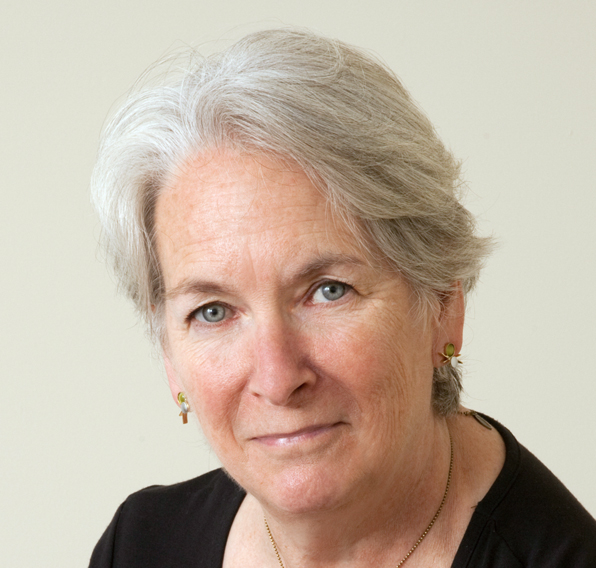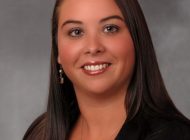Katie Bates ’07, owner of Hoopla LLC, a marketing and promotions business, sat down one day in 2010 to send out a batch of “cold-call” e-mails offering her services. She included in the pitch that Hoopla was a woman-owned business. Back came a reply from Northeastern University: Send us a quote; we’re happy to support women entrepreneurs. She got the job—design and deliver 7,000 T-shirts for a 5K fun run featuring Paws, Northeastern’s mascot. Bates worked with a designer to create a tail-wagging pup on a bright-red background. She added foil embellishments to the dog’s four sneakers, and she shepherded the design through production to be sure the special touch was pulled off.
Susan MacMichael John ’70 turned away from a grinding life on the road after 15 years in conference-center management, and
founded Financial Focus, a financial-planning firm in New Hampshire’s Lakes Region. From the beginning, her focus was on appreciating the individuality of her clients, and on problem-solving for their unique circumstances. “Every single person who walked through the doors had a different set of problems,” she says. “It was never going to be boring.”
Susan John and Katie Bates represent the range of women business owners, nationally and in New Hampshire. Bates started Hoopla after being laid off from an Internet-marketing job. The company that let her go became Hoopla’s first client. Before she switched careers, John sought expert assistance, taking aptitude tests and learning which careers built on her strengths. Since its founding in 1995, Financial Focus has grown to employ seven people, oversees $140 million in assets, and has been in the vanguard of fee-only services in the financial-planning industry.
The two Plymouth State alumnae are among an increasing number of women business-owners nationally and in New Hampshire. “The future of business in central New Hampshire is small business,” says Trent Boggess, dean of PSU’s College of Business Administration. Women business-owners, trends also suggest, are the future of small business.
Nationally, women now start small businesses at twice the rate of men. Between 1997 and 2011, the number of women-owned businesses in New Hampshire—businesses like Hoopla and Financial Focus—grew by 37 percent.
However, a closer look at the state of women in New Hampshire reveals a challenging landscape. A 2011 report by the Women’s Fund of New Hampshire and the New Hampshire Women’s Policy Institute noted that even though two-thirds of New Hampshire women work outside the home, giving the state one of the nation’s highest rates of labor-force participation by women, the percentage of women-owned businesses in the state, less than 26 percent, puts New Hampshire in the bottom quarter of national rankings.
Amy Bassett ’90, a director with the US Small Business Administration in New Hampshire, says despite the increase in women-owned start-ups, the number of women-owned businesses in New Hampshire has actually declined. “We’re seeing more closures than starts in New Hampshire. It’s a function of the economy.”
Susan Losapio ’83, a professor at SNHU’s School of Business, conducted detailed comparisons of 20 woman-owned businesses in southern
New Hampshire for her doctoral dissertation. All had fewer than 20 employees and had opened between 2000 and 2005. Half were still in business five years later. Losapio discovered patterns among those that had succeeded: The women leading those businesses were savvy about social media and other technology, had a better understanding of their company’s financials, and were more strategic, avoiding getting mired in day-to-day details. Perhaps the biggest difference Losapio noticed, though, involved something hard to quantify: “a sustainable passion.” Some of the business owners called their work a mission or a calling. “Not a theme I was expecting,” says Losapio. Interestingly, more than half of the women who closed businesses have since started new ones, closer to their passions.
Susan John, whose business is fully established and flourishing, wonders if she could even start it in the current economy: “It would be virtually impossible for someone to bootstrap the business the way I did.” Katie Bates started her business without any outside funding and chose to maintain it as a solo operation to have greater flexibility in her hours and even the location of the business.
Some observers point to a lack of support services in the state as one of the challenges of this landscape—not just for women but for all small business owners. Plymouth State is addressing the challenge by working in partnership with the Grafton County Economic Development Council to develop the Enterprise Center at Plymouth, scheduled to open in summer 2013. The University is building on its national reputation for teaching the fundamentals of small business to undergraduate and graduate students. The new initiative promises to do more—making a wide range of faculty available to small business owners; addressing their needs from start-up through all the phases of a business; working on issues of importance to businesses in rural areas, including some of the issues Losapio uncovered in her research. Boggess expects the Enterprise Center at Plymouth to appeal to women with children who run home-based businesses, especially those that have an Internet-based component. The same reasons they’re working from home may make it hard for those entrepreneurs to take advantage of a traditional campus-based resource. Boggess believes that the new center’s virtual online programs will help serve the needs of these small business owners.
One thing is certain: The center will serve business owners with a wide range of goals. Running her own business allowed Katie Bates to travel and gave her plenty of flexibility, room for creativity, and field-tested skills she can take anywhere. Hoopla supported her for several years during the recession. “Being able to survive and support myself is a pretty good feat,” she says.
Starting her own business also gave Bates a close-up view of the changing business landscape. “It’s hard to believe,” she says, “but social marketing was new just three years ago.” Companies now run their websites and social media in-house. She recently scaled back her Hoopla clients to take a full-time job as a marketing manager for a bank in Boston. No surprise, she’ll be pioneering social media in the banking industry.
Nearly two decades after she started Financial Focus, Susan John continues to meet her original goals for the business, starting with finding purpose in her work. In financial planning, she says, “We see where the pressure points are in society.” She helps families trying to pay for college and people wondering if they can retire. Nor is she bored: “I’m still passionate about the work I do,” she says. “I have no interest in retiring anytime soon.”—Kristen Laine
Kristen Laine is an award-winning journalist who lives and works in Grafton County, New Hampshire.
So you want to start a business?
Tips for aspiring entrepreneurs from …
Katie Bates ’07:
Students — make sure you’re well-rounded. Get involved in clubs and organizations on campus. I did not get straight As at Plymouth State, but I was a CA in my residence hall. I always had another job, and I started a student-run advertising agency my junior year.
Don’t rush into it, but don’t sit on a good idea, either. Ask yourself what’s the worst that can happen if you fail.
Susan MacMichael John ’70:
Find something that you can be passionate about and that utilizes your unique skills and talents.
Don’t be afraid to get some help; for example, consult with a CPA to help you pick the right form of business.
Susan Losapio ’83:
Is your idea grounded in a sustainable passion? If you’re going to go into business for yourself, do it because you really want to.
You have to be able to hear No and keep going. If you can’t risk hearing No, don’t go into business for yourself.
Amy Bassett ’90:
Do your homework. No one is going to care as much as you do whether your business succeeds or fails.
You need to understand all aspects of the business. Often we see business owners who know the operations of their business but not their financials. Or they don’t have a business plan.
Are you an alumna/us who owns a business? We invite you to share your experiences with us!
Tags: alumnae Amy Bassett business CoBA Katie Bates Susan John Susan Losapio Trent Boggess women-owned businesses
















